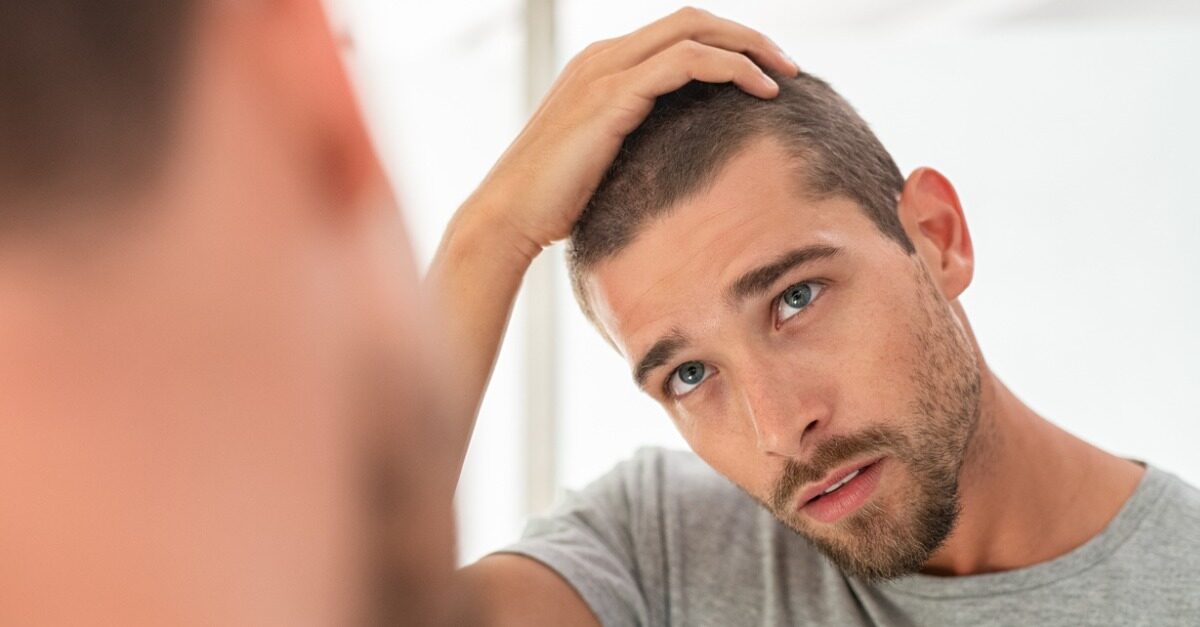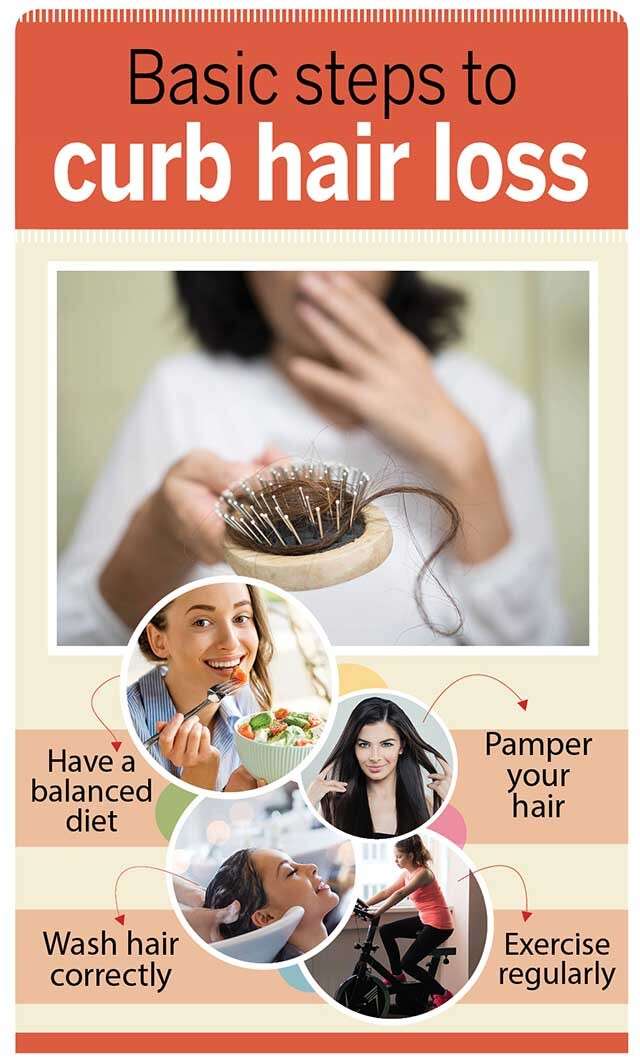To prevent hair loss, limit the use of heat-styling tools, avoid tightly pulling your hair back, and follow a healthy diet that includes enough protein and iron. Additionally, consider using prescription medications like finasteride (Propecia) for male pattern baldness.
These preventive measures can help reduce the risk of hair loss and promote healthier hair growth.

Credit: www.olanskydermatology.com
Understanding Hair Loss
Understanding Hair Loss: Learn the causes and find out how you can prevent hair loss naturally. Discover tips for managing hair loss and explore treatments and prevention options.
Causes Of Hair Loss
There are several factors that can contribute to hair loss. One of the most common causes is hereditary hair loss. This type of hair loss, also known as male pattern hair loss in men and female pattern hair loss in women, is a result of genetic factors passed down from parents to their children. Another factor that can lead to hair loss is hormonal changes. This can occur during pregnancy, menopause, or as a result of certain medical conditions.
Additionally, certain medical treatments such as radiation therapy and chemotherapy can cause hair loss. Other factors that can contribute to hair loss include nutritional deficiencies, stress, and certain medications. It’s important to note that hair loss can also be a natural part of the aging process.
Prevention Measures
While hair loss may not always be completely preventable, there are certain measures you can take to minimize the risk:
- Ensure you are following a healthy diet that includes enough calories, protein, and iron. Your hair needs proper nutrition to stay healthy and strong.
- Find ways to manage stress, as chronic stress can contribute to hair loss. Incorporating stress management techniques such as meditation, exercise, and relaxation can help.
- Avoid harsh hair treatments and styles that can cause damage and breakage. Limit the use of heat styling tools such as curling irons, flat irons, and hot combs, and choose the lowest heat setting on your blow dryer.
- Be gentle with your hair. Avoid pulling it tightly in hairstyles like buns, ponytails, braids, and cornrows, as this can cause tension and lead to hair loss over time.
- Protect your hair from the harmful effects of the sun. UV rays can damage the hair follicles and contribute to hair loss. Wear a hat or use hair products with UV protection when spending time outdoors.
- Consult with your doctor about any medications or supplements you are taking that might be contributing to hair loss. They may be able to recommend alternatives or adjust your dosage.
- If you are undergoing medical treatments such as chemotherapy, discuss the possibility of using a cooling cap with your doctor. Cooling caps can help minimize hair loss during treatment.
By adopting these prevention measures, you can help maintain the health and strength of your hair and reduce the risk of hair loss.
Hair Loss In Men And Women
Hair loss is a common issue that affects both men and women. Understanding the causes and prevention methods can help combat this problem. Some tips include limiting the use of heat-styling tools, avoiding tight hairstyles, following a healthy diet, and using gentle hair care products.
Types Of Hair Loss
When it comes to hair loss, it’s important to understand that it can affect both men and women. However, the causes and patterns of hair loss may differ between the two genders.
Preventing Hair Loss
Prevention is always better than cure, especially when it comes to hair loss. Here are some tips that can help both men and women prevent hair loss:
- Avoid using excessive heat on your hair, such as curling irons, flat irons, and hot combs. If you need to use them occasionally, make sure to use the lowest heat setting.
- Stop wearing your hair tightly pulled back in hairstyles like buns, ponytails, pigtails, cornrows, or braids. These hairstyles can put excessive stress on your hair follicles, leading to hair loss.
- Eat a healthy and balanced diet that includes enough protein, iron, and other essential nutrients that promote hair growth.
- Manage stress effectively, as it is a common cause of hair loss. Engage in activities like exercise, meditation, and yoga to reduce stress levels.
- Avoid crash diets or extreme weight loss, as they can deprive your body of essential nutrients needed for healthy hair growth.
- Consider taking multivitamin supplements or hair loss medications, under the guidance of a healthcare professional.
- Protect your hair from harmful ultraviolet (UV) rays by wearing a hat or using hair care products with SPF.
- If you smoke, quit smoking. Smoking has been linked to hair loss and can worsen existing hair loss conditions.
By following these preventive measures, you can reduce the likelihood of experiencing hair loss and promote healthy hair growth.
Managing Hair Loss
Learn how to manage hair loss with these essential tips. From limiting heat styling tools to avoiding tight hairstyles, taking care of your hair is crucial in preventing further hair loss. Additionally, eating a balanced diet and reducing stress can also contribute to healthier hair.
Treatment Options
There are several treatment options available for managing hair loss. These options can vary depending on the cause and severity of the hair loss. It is recommended to consult with a healthcare professional or dermatologist to determine the most suitable treatment option for your specific condition. Some common treatment options include:
- Medications: Prescription medications such as finasteride (Propecia) and minoxidil (Rogaine) have shown to be effective in preventing further hair loss and promoting hair regrowth. These medications work by either blocking the production of dihydrotestosterone (DHT), a hormone that causes hair follicles to shrink, or by increasing blood flow to the hair follicles.
- Hair transplant: Hair transplant is a surgical procedure that involves removing hair follicles from one part of the body (usually the back or sides of the scalp) and transplanting them to the balding areas. This procedure can provide permanent, natural-looking results.
- Low-level laser therapy: Low-level laser therapy (LLLT) is a non-invasive treatment option that uses red or near-infrared light to stimulate hair growth. This therapy is thought to increase blood flow to the hair follicles and promote the growth of thicker, healthier hair.
Hair Care Tips
Taking proper care of your hair can also help in managing hair loss. Here are some hair care tips to consider:
- Be gentle with your hair: Avoid using harsh chemicals or styling products that can cause damage to your hair. Use a wide-toothed comb instead of a brush to avoid pulling and breaking the hair.
- Avoid excessive heat: Limit the use of hot styling tools such as curling irons, flat irons, and hot combs. When using these tools, use the lowest heat setting possible to minimize damage to your hair.
- Avoid tight hairstyles: Avoid wearing your hair tightly pulled back in hairstyles such as buns, ponytails, pigtails, cornrows, or braids. These hairstyles can put stress on the hair follicles and lead to hair breakage and traction alopecia.
- Use a moisturizing conditioner: After shampooing your hair, apply a moisturizing conditioner to help reduce breakage and split ends. Leave-in conditioners can also be beneficial in keeping your hair hydrated and protected.
By implementing these treatment options and hair care tips, you can effectively manage hair loss and promote healthier hair growth. Remember to consult with a healthcare professional for personalized advice and guidance.

Credit: www.amazon.com
Credit: www.insider.com
Frequently Asked Questions Of What You Should Know About Hair Loss And How To Prevent It
How Hair Loss Can Be Prevented?
To prevent hair loss, limit the use of heat styling tools and avoid tight hairstyles. Eat a balanced diet and manage stress levels. Check with your doctor regarding medications that may cause hair loss. Protect hair from sunlight and consider using scalp treatments containing antioxidants.
What Are The Big 3 To Prevent Hair Loss?
The big 3 to prevent hair loss are: limiting the use of heated styling tools, avoiding tight hairstyles that pull on the hair, and ensuring a healthy diet with enough protein and iron.
What Is The Number 1 Reason For Hair Loss?
The number 1 reason for hair loss is hereditary hair loss, which affects both men and women. It is the most common cause of hair loss worldwide. In men, it’s called male pattern hair loss, while women experience female pattern hair loss.
How Do I Stop Hair Falling Out?
To stop hair falling out, try these tips: 1. Eat a nutritious diet with plenty of protein. 2. Follow a Mediterranean-style eating plan. 3. Avoid crash diets. 4. Consider taking supplements or medication for hair loss. 5. Take multivitamin supplements. 6.
Practice good hair care habits. 7. Be gentle with your hair. 8. Protect your hair from sunlight and UV light. 9. Stop smoking. 10. Manage stress. These steps can help prevent hair loss and promote healthier hair.
Conclusion
To prevent hair loss, it is important to take certain precautions and make lifestyle changes. Limit the use of heat styling tools, opt for a lower heat setting on your blow-dryer, and avoid hairstyles that tug on the hair. Following a balanced diet, managing stress, and avoiding crash diets can also contribute to healthier hair.
Seeking the advice of a healthcare professional regarding medications and supplements that may cause hair loss is crucial. Applying antioxidants to the scalp and using hair products that promote scalp health can also be beneficial. By implementing these strategies, you can maintain healthier and fuller hair.


